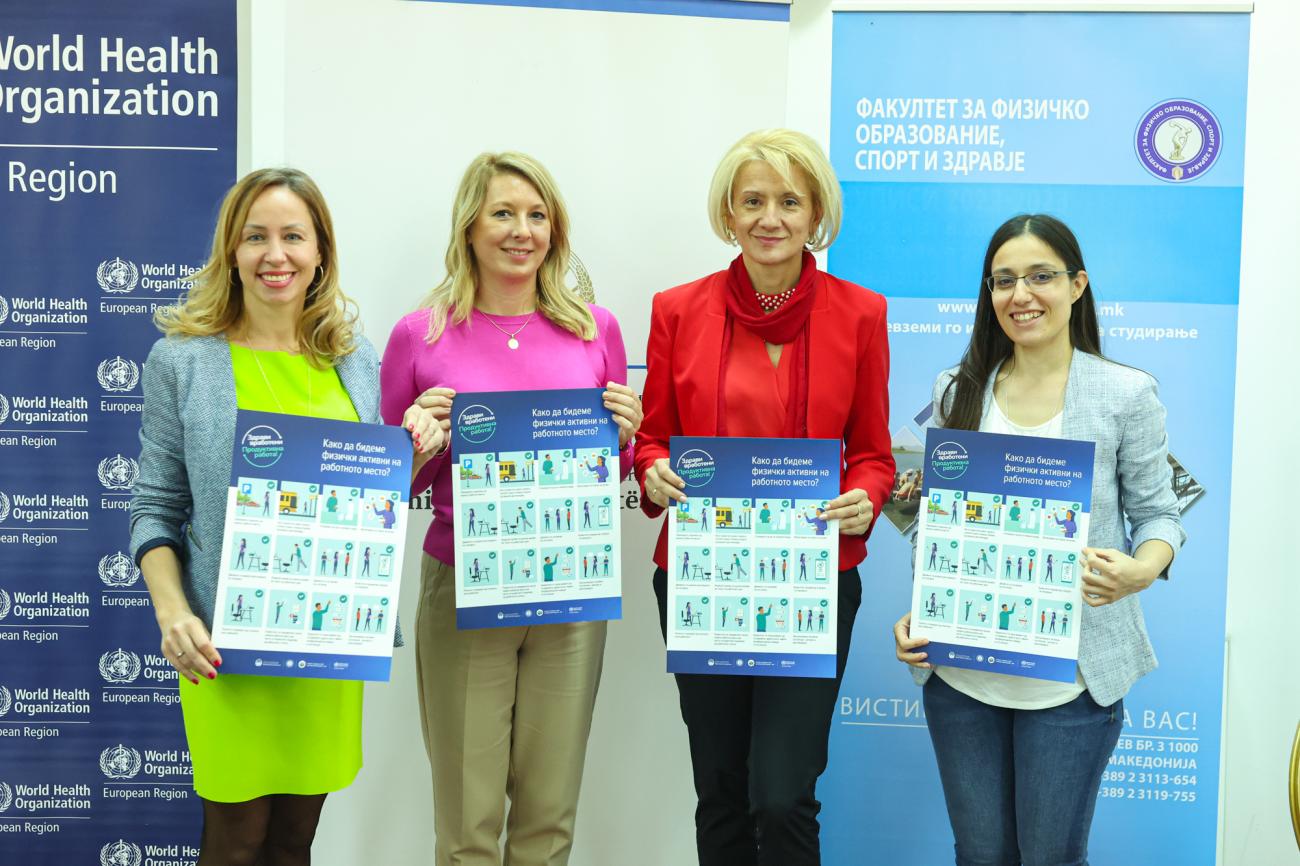Promoting physical activity in the workplace for a healthier workforce in North Macedonia

Most of North Macedonia’s working population does not engage in regular physical activity, reveals a new desk review of the current status of physical activity.
With data collected in June and July 2022, the review was conducted by the Institute of Occupational Medicine in Skopje, designated as a World Health Organization (WHO) Collaborating Centre. This activity is a part of a wider initiative to promote physical activity in the workplace, implemented in partnership with the Ministry of Health and the Faculty of Physical Education, Sport and Health in Skopje.
“This analysis will serve as an excellent basis for identifying existing bottlenecks in this area, while also offering concrete guidelines on further steps for boosting the working population’s physical activity levels”, said Dr Dragana Bislimovska from the Institute of Occupational Medicine. “Worksite physical activity has benefits both for the employees and for the workplace – a physically active workforce is a healthier and more productive workforce.”
As most adults spend a majority of their time at work, if they are to meet the recommended 150 minutes of physical activity per week, it is essential that they are active before and after, but also during working hours. Leveraging opportunities for physical activity at work is key to increasing activity levels among the working-age population.
Park your car away from your office, eat your lunch away from your desk, organize standing up or walking meetings rather than sit-down meetings – these are only part of the recommendations presented at a National Meeting for Promotion of Physical Activity in the Workplace held on 1 November 2022 in Skopje.
“The working population is the active core of every society, so the development and implementation of strategies and programs for promotion of physical activity is necessary to prevent presentism, i.e. the problem of workers being on the job, but, because of illness or other medical conditions, not fully functioning, but also absenteeism, reduced productivity in the workplace as well as the emergence of work-related diseases – all these significantly straining the health systems financially,” said Dr Anne Johansen, WHO Special Representative to North Macedonia and Head of the Country Office ad interim.
Regular physical activity is proven to help prevent and manage noncommunicable diseases (NCDs) such as heart disease, stroke, diabetes and several cancers. It also helps prevent hypertension, maintain healthy body weight and can improve mental health, quality of life and well-being.
Multisectoral collaboration has been crucial for promoting physical activity and healthy lifestyles in North Macedonia in the past few years.
“Prompted by the findings from a 2019 WHO Expert Mission for promoting physical activity nationwide, the Ministry of Health has initiated a wide array of actions for populations across all age groups,” said Sanja Sazdovska from the Ministry of Health, WHO Focal Point for Physical Activity. “For example, the law was changed to increase the amount of time for physical activity in schools, thus making progress towards improving the health and well-being of school children” said Sazdovska.
“Doing any physical activity is better than doing none,” said Lence Aleksovska Velickovska, Dean at the Faculty of Physical Education, Sport and Health. “By gradually adding small amounts of movement in relatively simple ways throughout our workdays, we can go a long way.”
The WHO Global Action Plan on Physical Activity 2018-2030 emphasizes the importance of the workplace in increasing population physical activity. According to this Action Plan, global progress to increase physical activity has been slow, largely due to lack of awareness and investment.
WHO will continue to support the government of North Macedonia to promote healthy lifestyles across the country and strengthen action to prevent NCDs.

